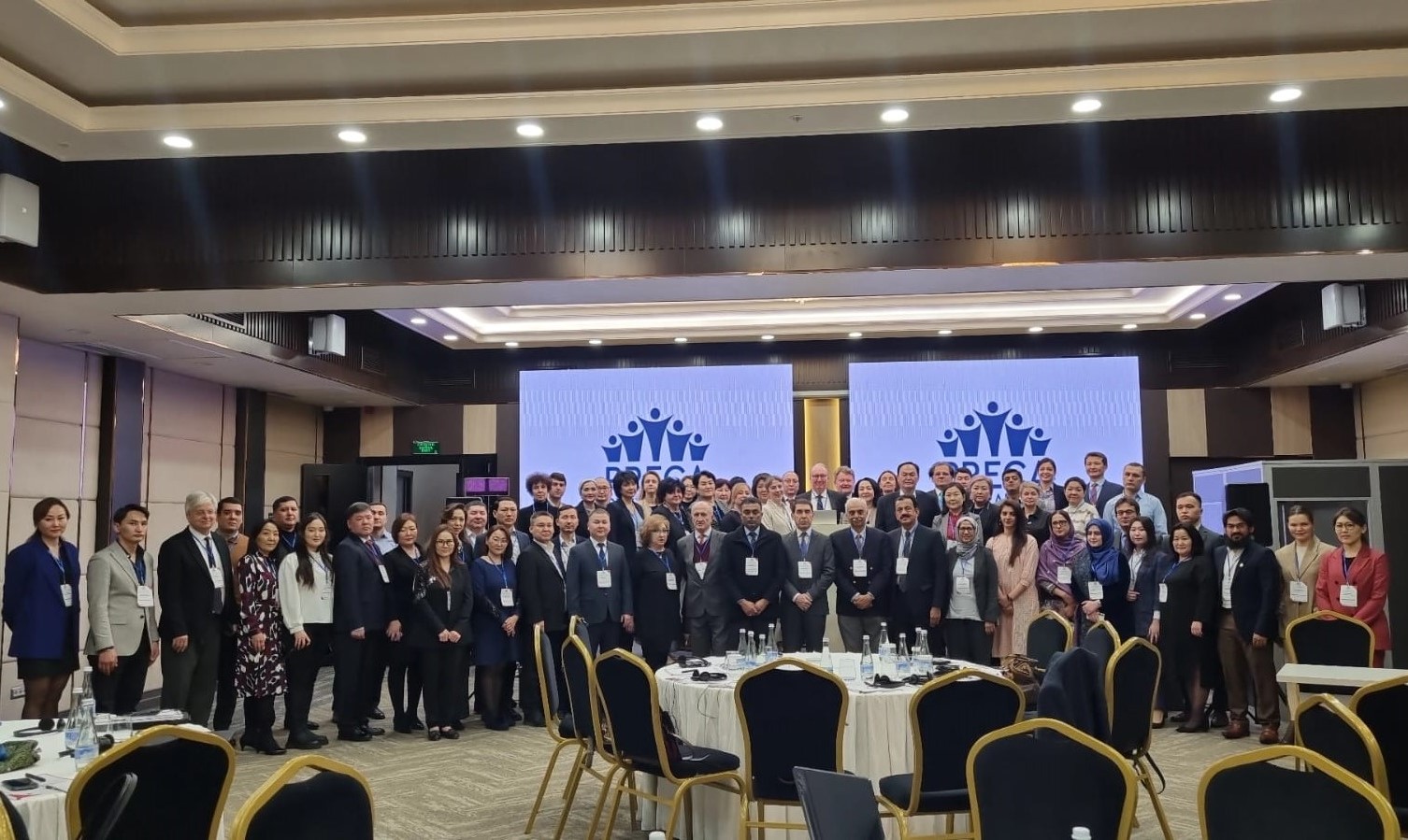PRECA hosted a Risk and Media Communications training in Tashkent, Uzbekistan

On 3-6 March PRECA Project Consortium and National Experts from partner-countries (Kazakhstan, Kyrgyzstan, Mongolia, Pakistan, Tajikistan and Uzbekistan) met in Tashkent, Uzbekistan to run Risk and Media Communication Training. This Training is aimed to enhance understanding of risk assessment and management, as well as communication with social public during crisis. Training program included not only theoretical sessions, but also practical sessions with tabletop exercises.
During the plenary opening session of the event on the 4th March 2024,
- Gulyamov, Head of the Regional Secretariat for Central Asia of EU’s CBRN Centres of Excellence Initiative, stated: “The main objective of the EU’s CBRN Centres of Excellence Initiative and its projects is to facilitate regional cooperation in order to enhance CBRN risk mitigation awareness, readiness and capabilities at national, regional and international levels.”
- Sorin Popa, who joined the session online, extended his gratitude to the participants and joint efforts to enhance preparedness and response to Mass Gathering in the region,
- David Cleave, Executive Director of the International Science and Technology Center, highlighted importance of PRECA project and wished successful Risk and Media Communication Training.
Moderator of the training was Andrew Proudlove, PRECA Team Leader, trainers of the sessions were Raquel Duarte-Davidson, UK National Poisons Information Service, Katy Caroll, United Nations Interregional Crime and Justice Research Institute and Alina Iatan, European Commission Joint Research Centre.
Mass gatherings, including sporting events, religious occasions, festivals, concerts and alike events bring people together from all over the world. As such, mass gathering events carry a risk of public health emergencies. With transport options becoming more affordable and accessible and businesses operating on a global scale, it is expected that more mass gatherings will take place; greater numbers of nations will be hosting them; and participants will be travelling from an increasingly large and distant number of countries. All these factors introduce new challenges to national and international health security. The COVID-19 crisis has dramatically highlighted the need for managing such major events.
To respond to these challenges, the European Union’s (EU) Chemical, Biological, Radiological and Nuclear (CBRN) Centres of Excellence (CoE ) Initiative has funded Project 87 “Preparedness and Response for Mass Gatherings and Other Health Threats in Central Asia (PRECA)”. The project has been underway for more than three years and formed a network of experts in Food Safety, Water Safety, Chemical Safety and Public Health Command Control and Communications (C3), who constantly share their experience and organize National Trainings in their countries using knowledge and expertise gained during PRECA Train the Trainer Workshop in 2022 in Tashkent. PRECA Project is implement by the International Science and Technology Center.
PRECA project is working with the World Health Organization and the United Kingdom National Poisons Information Service to establish Poison Information Centres across Central Asia.
Background information:
The EU CBRN CoE Initiative is funded by the EU and implemented in cooperation with the United Nations Interregional Crime and Justice Research Institute (UNICRI) and the European Commission Joint Research Centre (JRC). The European External Action Service is also involved in the follow-up to the initiative. The initiative is developed with the technical support of relevant international and regional organizations, the EU Member States, and other stakeholders, through coherent and effective cooperation at the national, regional and international level. The initiative involves 62 countries in eight regions across the world. The project is implemented by the International Science and Technology Center (ISTC), Astana, Kazakhstan.

